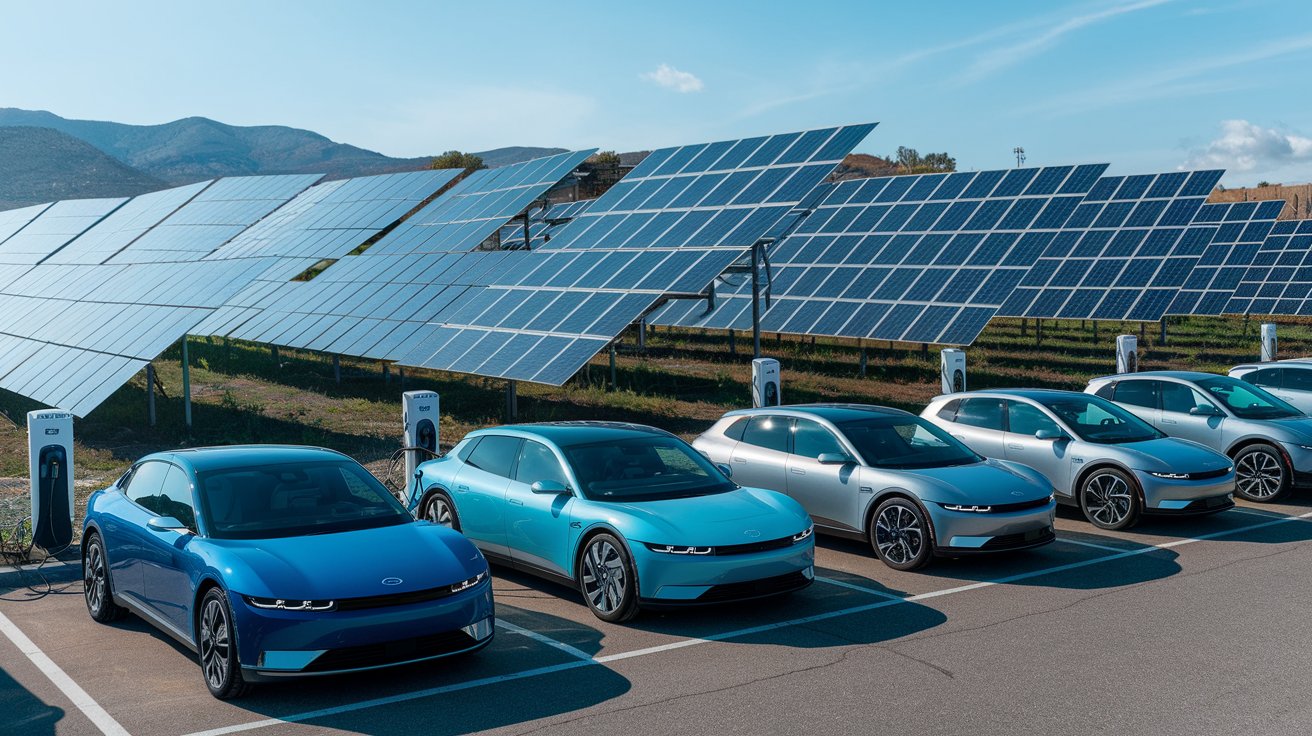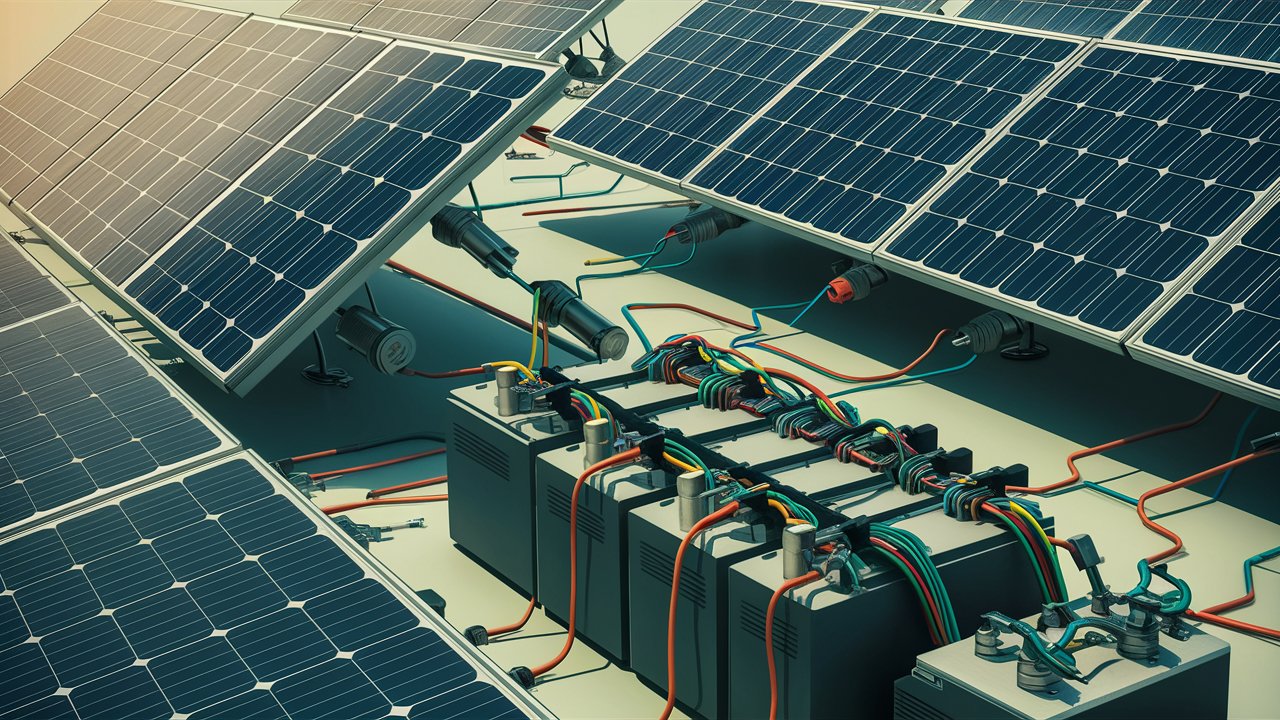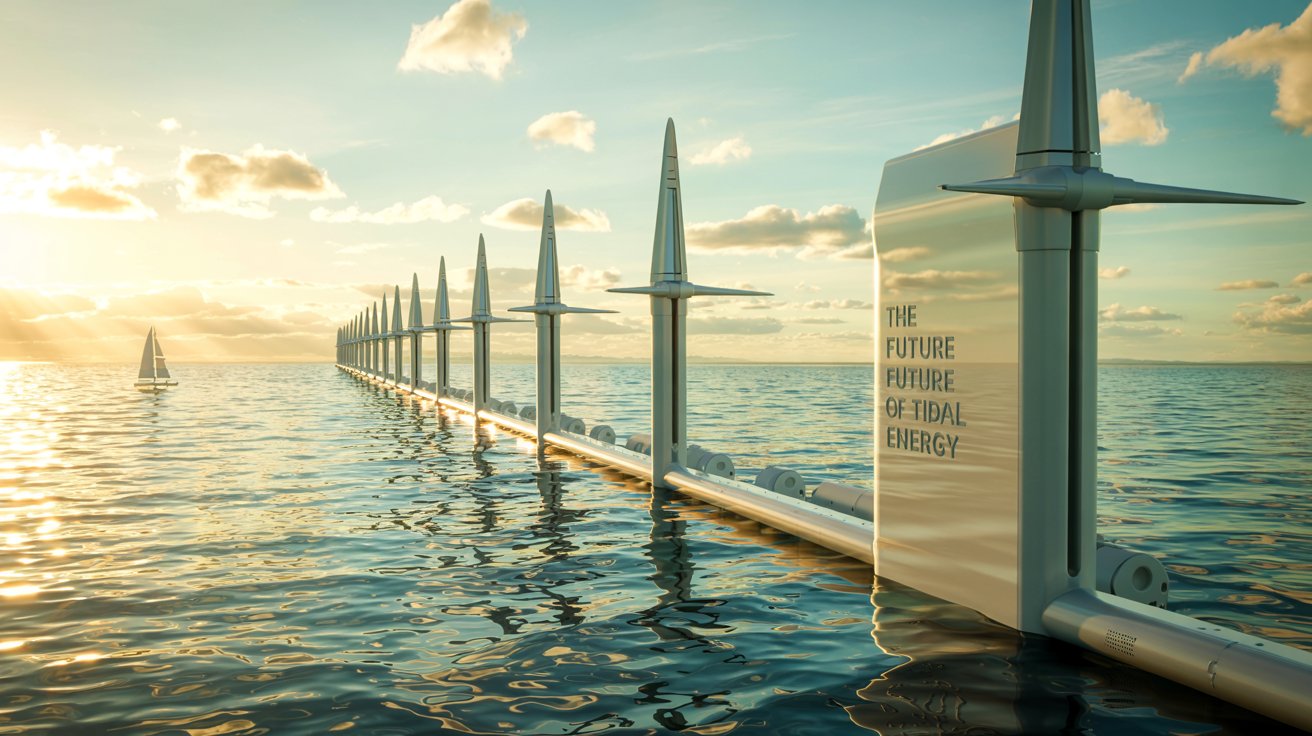Introduction
Electric vehicles (EVs) are changing the car business because they are better and last longer than cars that use oil. Being able to run electric cars with the 4 Renewable Energy Sources for Electric Vehicles is becoming more and more important as the number of electric cars on the road grows.
Building a transportation system that is both green and long-lasting requires the use of 4 renewable energy sources solar, wind, water, and geothermal power.
Different kinds of green energy sources for electric vehicles can power electric cars. This blog discusses their pros and cons and answers common questions about using them.
Contents
Renewable Energy Sources for Electric Vehicles
1. Solar Power
Solar power is one of the most likely renewable energy sources for electric Vehicles. Solar screens convert solar light into electricity, which can power electric vehicles.
You can install solar charging points in homes, businesses, and public places to facilitate easy and environmentally friendly electric car charging.
Benefits of Solar Power for EVs:
- Clean and Sustainable: Solar energy produces no greenhouse gas emissions, making it a clean energy source.
- Cost-Effective: Once installed, solar panels require minimal maintenance and can significantly reduce electricity costs.
- Energy Independence: Solar power allows EV owners to generate their electricity, reducing reliance on the grid.
2. Wind Power
Wind power, a sustainable energy source, can also charge electric cars. Wind turbines take the kinetic energy from the wind and turn it into electricity.
Batteries can store this electricity or send it to the grid to power electric vehicle charging points.
Benefits of Wind Power for EVs:
- Abundant and Renewable: Wind energy is plentiful and inexhaustible.
- Low Operational Costs: Wind turbines have low operating and maintenance costs once installed.
- Environmental Impact: Wind power generates no air pollution or greenhouse gases.
3. Hydropower
Hydropower, also known as hydroelectric power, utilizes the energy of moving water. This renewable energy source can generate power for charging electric cars.
People often build hydropower plants near rivers and dams so that they can control the flow of water and make beneficial use of it.
Benefits of Hydropower for EVs:
- Reliable and Consistent: Hydropower provides a stable and continuous source of energy.
- High Efficiency: Hydropower plants have high conversion efficiency rates.
- Minimal Environmental Impact: Modern hydropower plants are designed to minimize environmental disruption.
4. Geothermal Power
Geothermal power is derived from the heat in the Earth’s core. Electric cars can use this clean energy source as a stable and long-lasting power source.
Geothermal power plants typically locate themselves in areas with abundant geothermal activity.
Benefits of Geothermal Power for EVs:
- Constant Energy Supply: Geothermal energy is available 24/7, regardless of weather conditions.
- Low Emissions: Geothermal power produces minimal greenhouse gas emissions.
- Sustainable: Geothermal energy is a sustainable and long-term energy solution.
FAQ
Renewable energy sources are a clean, long-lasting, and inexpensive way to power electric cars. This reduces the use of fossil fuels and the environmental damage they cause.
Yes, you can charge your electric car and make clean energy at home by installing solar panels or wind machines. This can help you use less energy and leave less of a carbon footprint.
A lot of public charging stations now get their power from clean energy sources like wind and sun. As more people buy electric cars, this trend is likely to get stronger.
The cost of setting up green energy systems depends on what kind of system it is and how big it is. But government rebates and incentives can help cover the original costs, making it a long-term investment that is worth it.
Yes, renewable energy sources like sun, wind, hydropower, and geothermal are reliable and can deliver a steady flow of electricity to charge electric cars.





Leave a Reply